For the 2025 school year, there is 1 public preschool serving 511 students in Dooly County School District. This district's average pre testing ranking is 1/10, which is in the bottom 50% of public pre schools in Georgia.
Public Preschool in Dooly County School District have an average math proficiency score of 14% (versus the Georgia public pre school average of 41%), and reading proficiency score of 11% (versus the 39% statewide average).
Minority enrollment is 91% of the student body (majority Black), which is more than the Georgia public preschool average of 65% (majority Black).
Overview
This School District
This State (GA)
# Schools
4 Schools
1,169 Schools
# Students
1,113 Students
724,977 Students
# Teachers
75 Teachers
53,908 Teachers
Student : Teacher Ratio
15:1
15:1
District Rank
Dooly County School District, which is ranked within the bottom 50% of all 222 school districts in Georgia (based off of combined math and reading proficiency testing data) for the 2021-2022 school year.
The school district's graduation rate of 85-89% has increased from 75-79% over five school years.
Overall District Rank
#213 out of 222 school districts
(Bottom 50%)
(Bottom 50%)
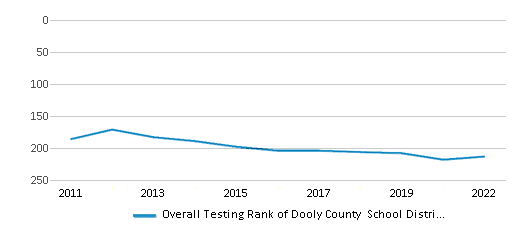
Math Test Scores (% Proficient)
9%
37%
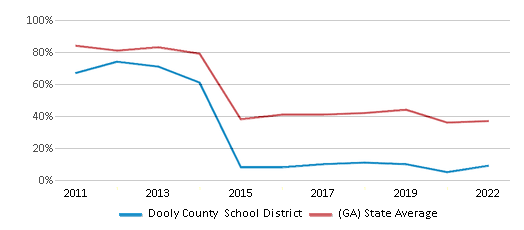
Reading/Language Arts Test Scores (% Proficient)
12%
40%
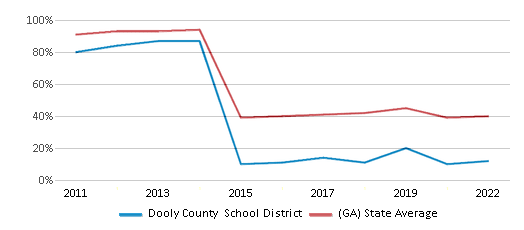
Science Test Scores (% Proficient)
20-24%
40%
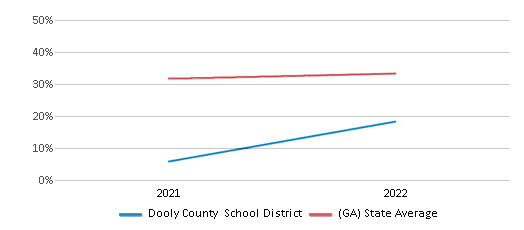
Graduation Rate
85-89%
84%
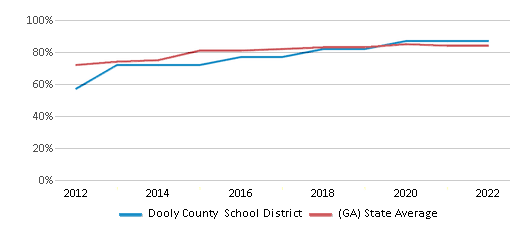
Students by Ethnicity:
Diversity Score
0.51
0.72
# American Indian Students
1 Student
1,833 Students
% American Indian Students
n/a
n/a
# Asian Students
4 Students
37,193 Students
% Asian Students
n/a
5%
# Hispanic Students
263 Students
140,749 Students
% Hispanic Students
24%
20%
# Black Students
732 Students
254,068 Students
% Black Students
66%
35%
# White Students
86 Students
251,423 Students
% White Students
8%
35%
# Hawaiian Students
n/a
675 Students
% Hawaiian Students
n/a
n/a
# Two or more races Students
27 Students
39,036 Students
% of Two or more races Students
2%
5%
Students by Grade:
# Students in PK Grade:
66
50,325
# Students in K Grade:
63
111,016
# Students in 1st Grade:
71
115,378
# Students in 2nd Grade:
85
117,370
# Students in 3rd Grade:
84
105,120
# Students in 4th Grade:
74
105,404
# Students in 5th Grade:
68
104,855
# Students in 6th Grade:
80
3,740
# Students in 7th Grade:
78
2,937
# Students in 8th Grade:
92
3,170
# Students in 9th Grade:
84
1,490
# Students in 10th Grade:
104
1,554
# Students in 11th Grade:
78
1,408
# Students in 12th Grade:
86
1,210
# Ungraded Students:
-
-
District Revenue and Spending
The revenue/student of $17,391 is higher than the state median of $14,305. The school district revenue/student has grown by 6% over four school years.
The school district's spending/student of $15,049 is higher than the state median of $13,431. The school district spending/student has grown by 6% over four school years.
Total Revenue
$19 MM
$24,999 MM
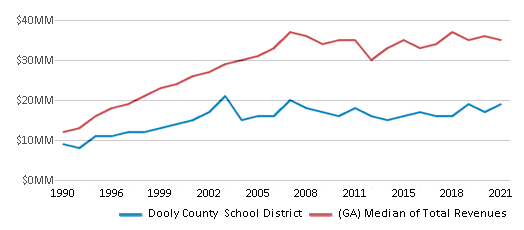
Spending
$17 MM
$23,473 MM
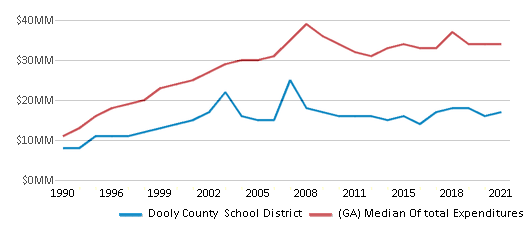
Revenue / Student
$17,391
$14,305
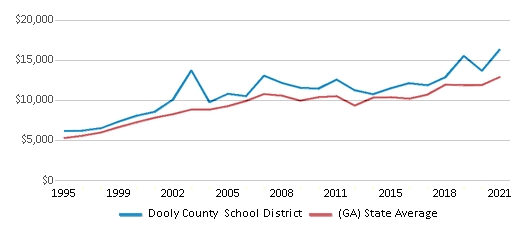
Spending / Student
$15,049
$13,431
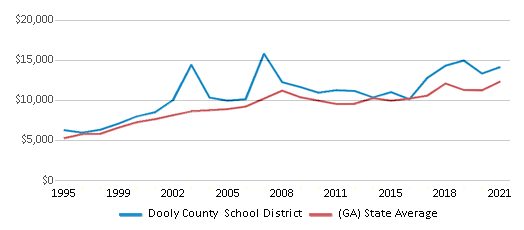
Best Dooly County School District Public Preschools (2025)
School
(Math and Reading Proficiency)
(Math and Reading Proficiency)
Location
Grades
Students
Rank: #11.
Dooly County Elementary School
(Math: 14% | Reading: 11%)
Rank:
Rank:
1/
Bottom 50%10
11949 Us Highway 41
Pinehurst, GA 31070
(229) 645-3421
Pinehurst, GA 31070
(229) 645-3421
Grades: PK-5
| 511 students
Recent Articles

Year-Round Or Traditional Schedule?
Which is more appropriate for your child? A year-round attendance schedule or traditional schedule? We look at the pros and cons.

Why You Should Encourage Your Child to Join a Sports Team
Participating in team sports has a great many benefits for children, there is no doubt. In this article you will learn what those benefits are.

White Students are Now the Minority in U.S. Public Schools
Increasing birth rates among immigrant families from Asia and Central and South America, combined with lower birth rates among white families, means that for the first time in history, public school students in the United States are majority-minority. This shift in demographics poses difficulties for schools as they work to accommodate children of varying language abilities and socio-economic backgrounds.





